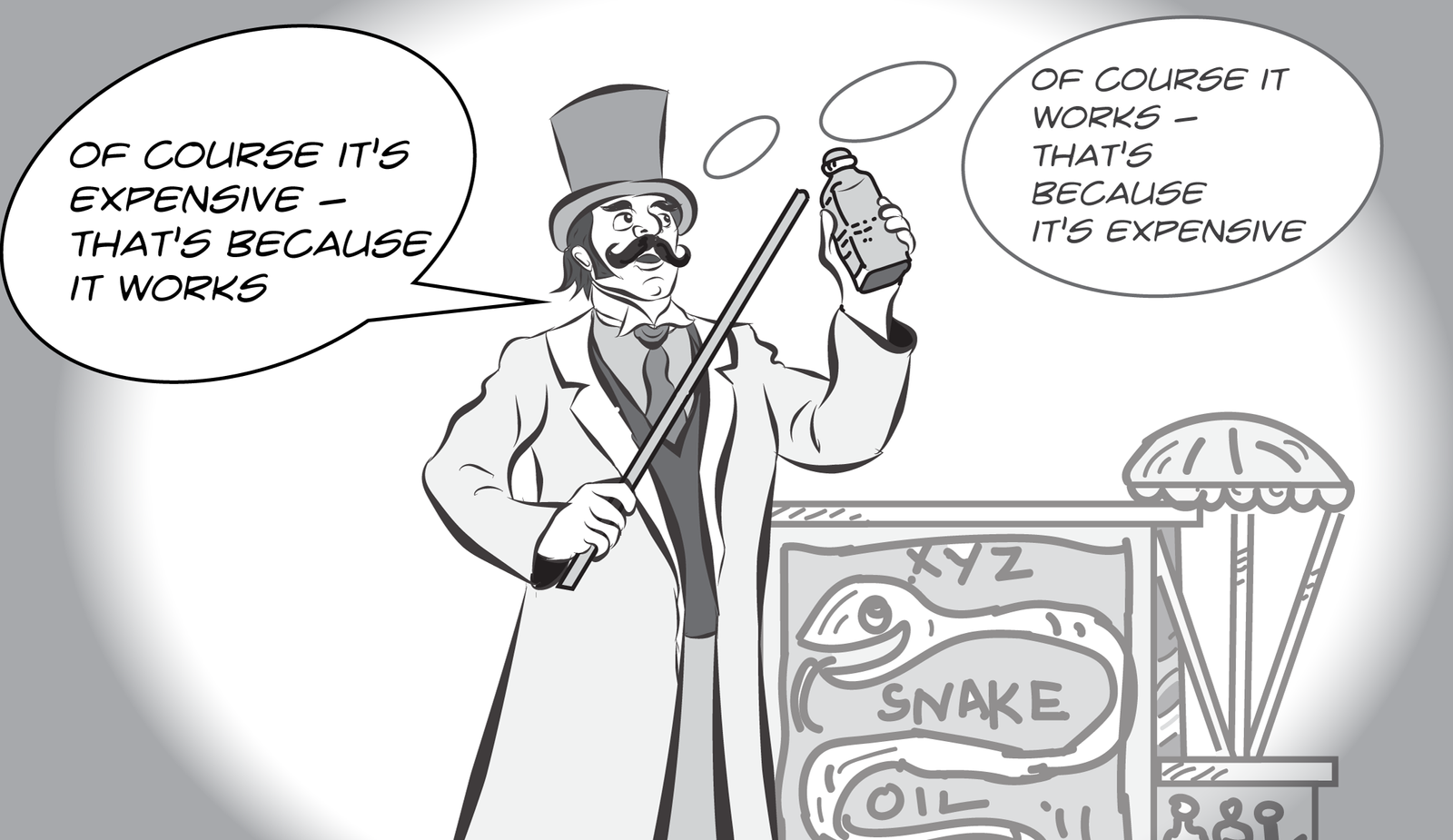Not long ago, I was out in London and developed a headache. When it didn’t go away of its own accord I popped into a chemist’s to get some tablets. Of course, there was a choice. I could go for one of several well known expensive brands or I could go for the chemist’s “own brand” variety for a fraction of the price.
Normally I wouldn’t hesitate to go for the cheaper option for something like paracetamol – after all, presumably the active ingredient is identical. However, by now this headache was really getting on my nerves and I was tempted to plump for a more expensive, branded version. Not because I thought they should work more quickly, but because I thought maybe my ingrained assumption that price equates to quality would fool the headache into going more quickly!
Because that is how we work, on the whole. In the absence of expert knowledge of how to assess the quality of any given product, we rely largely on price to guide us. After all, if that electric toothbrush costs £250, it must really be incredible. Sure, it may not be five times as good as the one that sells for £50, but it must be at least three times better, right? And taking good care of your teeth is really important. And look, it’s reduced to only £199.95 now – I’d better get it while it’s still on offer.
We generally believe we get what we pay for, even though we have all had expensive products which have broken down and cheap products that have gone on for years. Expensive wine tastes better (as an aside, wine tastes better in a heavier glass too, because we also associate weight with quality), expensive restaurants serve tastier food and expensive toothbrushes, when we have only just acquired them anyway, make our teeth feel “dentist clean” (insert glint of reflecting light off perfect smile here). And expensive drugs work better on our symptoms, naturally (beware of sugar coating though – some studies have shown that bad tasting medicine works better, because it can’t be medicine if it tastes okay, right?).
So here’s the question. Do you expect a higher paid CEO to perform better than a lower paid CEO? If you find out your CEO is paid £5,000,000, rather than the paltry £2,000,000 you were expecting, do you think, “Lucky bugger, there is no way anyone is worth that much (unless they play for the football team I support, and are quite good at kicking pigs’ bladders into nets)!”, or do you think, “Wow! He must be really good. I’m going to go out and buy some shares in this company”?
Oh, in case you were wondering, I bought the cheaper tablets and the headache went away very nicely, thank you very much.
To find out more about how price affects our thinking read my book, Bias Beware, available here.
